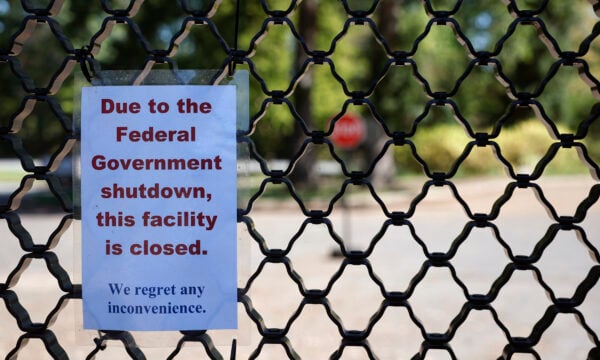What Does the Department of Energy Do?
The Department of Energy is a federal agency tasked with carrying out U.S. energy policy.
Many, or all, of the products featured on this page are from our advertising partners who compensate us when you take certain actions on our website or click to take an action on their website. However, this does not influence our evaluations. Our opinions are our own. Here is a list of our partners and here's how we make money.
The Department of Energy is a federal agency tasked with carrying out U.S. energy policy by supporting research and development in the energy sector, prioritizing security and improving energy access, among other responsibilities. Its mission emphasizes taking a scientific and technological approach to addressing energy, environmental and nuclear challenges. The agency believes tackling those challenges is key to the nation’s security and welfare.
What the Department of Energy does
The Energy Department was established in 1977, soon after the U.S. experienced its first so-called energy crisis. In 1973, a war in the Middle East broke out and oil-exporting countries set up an embargo that severely diminished the supply of crude. The experience sparked new federal policies geared toward establishing U.S. energy independence.
Meet MoneyNerd, your weekly news decoder
So much news. So little time. NerdWallet's new weekly newsletter makes sense of the headlines that affect your wallet.
But the department also has its roots in the Manhattan Project — a government research initiative that developed and tested the atomic bomb during World War II. That’s why, in addition to setting policy around fossil fuels and renewable energy sources, the DOE oversees U.S. nuclear policy.
In practice, the Energy Department has a broad range of responsibilities. For example, it:
- Plays a role in energy security, including overseeing nuclear safety and security, managing the Strategic Petroleum Reserve, preventing attacks on U.S. energy infrastructure, and responding to emergencies.
- Runs 17 national laboratories that conduct research in climate science, physics, applied math and computer science. Its supercomputing and other specialized resources are used in a variety of applications from cancer research to space exploration to artificial intelligence.
- Sells electricity generated at federally owned and operated hydroelectric dams through four Power Marketing Administrations.
- Cleans up waste produced by nuclear weapons development and energy research.
- Maintains transmission systems to expand access to affordable, reliable electricity.
- Handles permits requesting authority to export liquified natural gas.
- Sets energy efficiency standards for certain products, including consumer goods.
- Invests in the research and development of new technology and domestic energy supply chains.
- Collects, analyzes and shares information on a number of energy sources (renewable energy, petroleum, natural gas, alternative fuels and others) under the Energy Information Administration, a semi-independent agency.
What the Department of Energy has done lately
The Energy Department is currently headed by Chris Wright under the Trump administration. On his first day in office, President Donald Trump signed multiple executive orders outlining his agenda to “unleash” domestic energy production to achieve U.S. energy dominance and lower prices for consumers. Most notably, Trump declared a national energy emergency, which allows his administration to use certain emergency authority to cut through red tape and expand domestic energy production and transportation.
In the first weeks of the new administration, the DOE rolled back several Biden-era policies by:
- Resuming permitting for liquified natural gas exports to countries that don’t have a free trade agreement with the U.S.
- Removing other regulatory barriers for natural gas.
- Postponing implementation of regulations that would have set tougher energy standards for home appliances.
- Withdrawing conservation standards on other products, including electric motors, ceiling fans, dehumidifiers, and external power supplies.
In March, the Energy Department also reissued a call for applicants who would use a $900 million DOE grant to build and deploy new nuclear reactor technologies. The agency says nuclear power is one of the few sources that could produce enough energy to meet growing demand in the U.S.
What the Department of Energy can do for you
The Energy Department primarily interacts with consumers looking to save money on energy costs. Learn more:
Tax credits and rebates: Learn about the ways you could save some money as you update your home or shop for an electric vehicle.
Energy saver: Find tips to help cut back on energy usage in your home, including heating and cooling systems, water usage, weatherization and appliances.
Get additional energy saving information: You can contact the DOE’s energy saver program to submit comments, report issues or ask questions by emailing [email protected]. It’s worth noting, though, that the DOE doesn’t help with consumer complaints. Those should be submitted to the Federal Trade Commission.
How to reach the Department of Energy
The best way to make specific complaints, comments or reports is through the links above. Here are a few more general ways to contact the DOE.
DOE website: energy.gov
DOE phone number: 202-586-5000
Email: [email protected]
Mailing address:
1000 Independence Ave., SW
Washington, DC 20585
Article sources
NerdWallet writers are subject matter authorities who use primary,
trustworthy sources to inform their work, including peer-reviewed
studies, government websites, academic research and interviews with
industry experts. All content is fact-checked for accuracy, timeliness
and relevance. You can learn more about NerdWallet's high
standards for journalism by reading our
editorial guidelines.
Related articles






